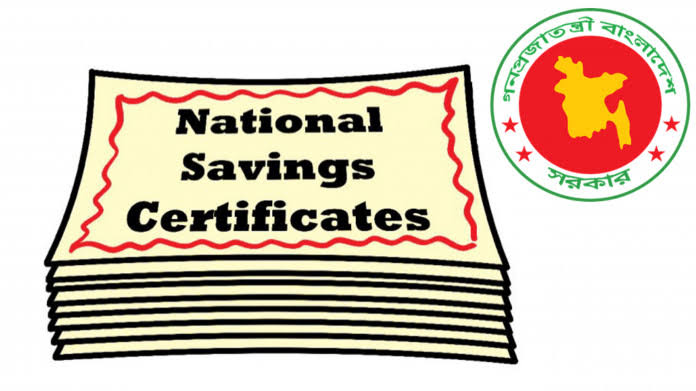Staff Correspondent
Published:2021-08-16 17:37:12 BdST
Savings tools sales thrive on lower bank deposits yield
Net sales of national savings certificates (NSCs) soared nearly three times from the previous fiscal year with more people inclining towards the government’s savings instruments discouraged by shrinking bank interest rates on deposits.
In the last (2020-21) fiscal year, the net sales of savings instruments stood at Tk 41,959.54 crore, up from Tk 1,4428.35 crore in the previous FY, according to the National Savings Directorate.
The government fixed a target of borrowing Tk 20,000 crore against savings instruments for FY2020-21, then the target was revised to Tk 30,302 crore in the revised budget.
A senior central bank official said that the dropping trend of yield on bank deposits due to BB’s expansionary monetary policy and higher inflow of remittance are the main reasons behind the increased sales of NSCs.
Now, most banks are collecting deposits at less than 3 percent. But the government is offering up to 11.3 percent interest against the national savings tools.
In June this year, the weighted average interest rate on deposits stood at 4.13 percent, BB data show.
The interest rates on deposits were higher in the pre-pandemic period but began falling from March last year when Covid-19 hit the country.
The central bank rolled out an expansionary monetary policy for FY2020-21 to steer the economy away from a steep downturn. But it flooded the market with liquidity – the banks had less demand for savers’ funds.
Surplus liquidity in the sector stood at Tk 2,31,462 crore at the end of June this year, up from Tk 1,39,558 crore in the same month of the previous year.
Meanwhile, the central bank has fixed the interest rate on deposits. It is also mopping up the surplus liquidity in the banking sector.
On August 8, the central bank instructed banks not to fix the interest rate of deposits below the inflation rate. Now, most banks are offering 2 percent to 3 percent interest rates on deposits, which is far below the 5.56 percent inflation rate as of June.
The interest rate on the government savings instruments is higher than the bank’s deposits, which helped boost their sales, said Ahsan H Mansur, executive director of the Policy Research Institute of Bangladesh.
“The sales of savings tools could increase more if there were no bar to investing in savings instruments,” said the economist.
In the FY2019-20 budget, the government had imposed a 5 percent tax at source on the interest income from NSCs worth up to Tk 5 lakh. It also levied a 10 percent tax at source for investment in schemes above Tk 5 lakh.
According to new rules imposed by the government, those investing in savings instruments need to submit their electronic taxpayer’s identification number (e-TIN) and the national identity number (NID). If the amount is more than Tk 1 lakh, they must pay the money through a bank cheque.
Mansur said the higher sales of saving tools are creating an interest burden for the government. Not only in Bangladesh, but the deposits rate of banks amid the pandemic are low in our neighbouring country, he added.
However, the economist said the BB should not have fixed the interest rate on deposits.
If the surplus liquidity in the banking sector remains high, the central bank’s instruction would not be effective, said Mansur, the Chairman of Brac Bank.
In June this year, the net sales of saving tools stood at Tk 4,573.56 crore, up from Tk 3,417.26 crore in the same month of the previous year, NSD data show.
Unauthorized use or reproduction of The Finance Today content for commercial purposes is strictly prohibited.


